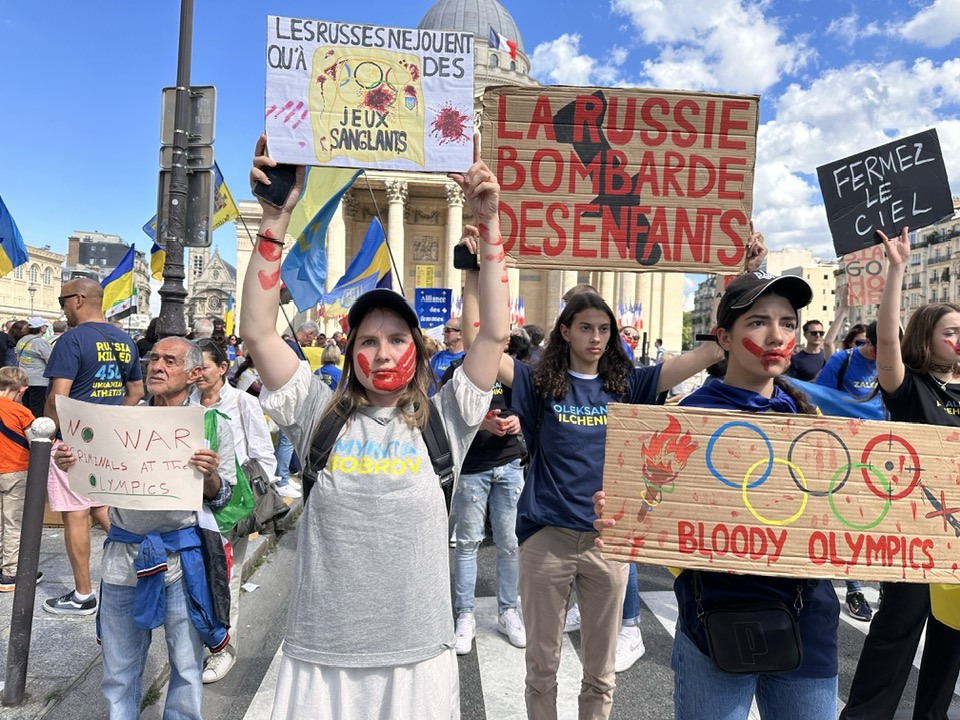As France prepares to host the world’s premier sporting spectacle, a dark shadow hangs over Paris, the City of Light. The 2024 Paris Olympics, set from 26 July to 11 August, finds themselves caught in a political crossfire. The Games’ ideals of peace and unity are being put to the test by the war in Ukraine and the controversial presence of “neutral athletes" from Russia and Belarus.
The Olympic motto “Faster, Higher, Stronger - Together” rings hollow as the sporting world faces challenging questions: Can there truly be neutrality in the face of armed aggression, namely Russia’s invasion of Ukraine and the ongoing war? The presence of athletes from Russia and Belarus, even minimal and under a supposed “neutral” banner, threatens to turn the sports arenas into battlefields and medals into political statements.
Sports as a political tool: Russia’s Olympic strategy and Ukraine’s concerns
The Russian government views sports as a crucial element of national security, utilizing it to maintain internal stability and bolster national defense capabilities. At the 2020 Tokyo Olympics, one-third of the Russian national team consisted of military personnel, who secured 71 medals.
Russian Olympic champions frequently participate in pro-Kremlin events and political campaigns, often wearing their medals. This integration into the state system is mainly voluntary, with athletes adhering to established norms.
Keith Rathbone, senior lecturer of modern European history and sports history at Macquarie University in Sydney, Australia, emphasizes that sports are “inherently political” and inseparable from political contexts. He argues that Russia’s authoritarian system compels athletes to conform, stating, “They’re all agents of the Russian state to some extent because the Russian state doesn’t allow them to be completely neutral, free, and open.”
Ukraine’s National Olympic Committee and Ministry of Youth and Sports have repeatedly expressed concern over Russian athletes’ participation in Kremlin propaganda events and competitions featuring Russian military symbols. They argue that the Russian sports community serves as an instrument of state policy, undermining the principles of international sports and fair competition.
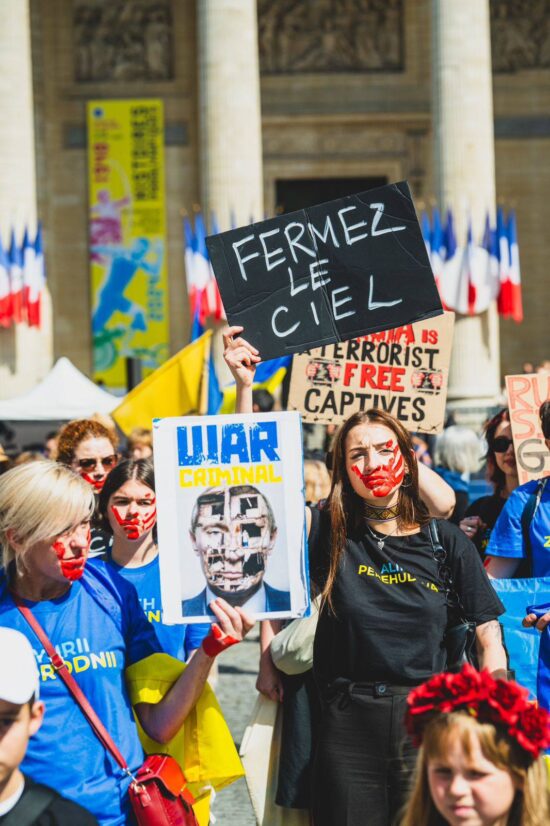
Ukraine advocates for a complete ban on Russian and Belarusian athletes in all international events, including the Olympic Games, as long as the war against Ukraine continues.
As of 13 July, the Olympics website indicates that only 16 Russian and 17 Belarusian athletes are scheduled to compete in the Paris Games.
Who are the “neutral athletes” at the Olympic Games?
The International Olympic Committee’s (IOC) position on Russian and Belarusian athletes has shifted since Russia’s invasion of Ukraine on 24 February 2022. Initially, on 28 February 2022, the IOC recommended banning athletes from both countries from international competitions to protect “the integrity of global sports competitions and for the safety of all the participants,” according to the IOC Executive Board.
The IOC later modified its regulations, permitting participation under a neutral banner with strict conditions and excluding team events.
In addition, in response to ongoing criticism and the participation of certain Russian and Belarusian athletes openly supporting the war, the IOC published and regularly updates an information sheet addressing their participation in international competitions.
On 19 March 2024, the IOC updated the AIN flag to teal text, a teal background, and an instrumental anthem for Individual Neutral Athletes (AINs). The IOC stated that AINs would not participate as a delegation during the opening ceremony parade but would be allowed to “experience the event.”
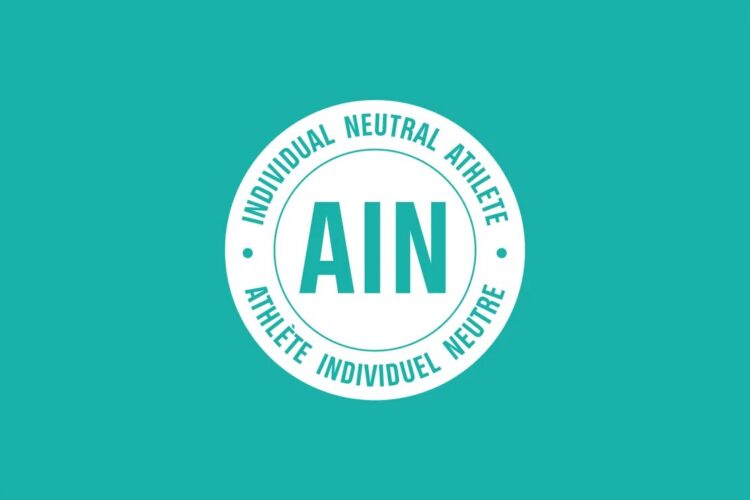
On 5 July, Vadym Hutssait, President of Ukraine’s National Olympic Committee (NOC), and Matvii Bidnyi, Acting Minister of Youth and Sports, sent a letter to the IOC providing evidence of war support by Russian athletes who qualified for the Paris Olympics. The NOC argued that these athletes do not meet the criteria for AIN status.
On 13 June, the IOC approved 25 Russian and Belarusian athletes to compete as AINs in the Paris Games. This initial list includes 14 Russians and 11 Belarusians in cycling, gymnastics, weightlifting, and wrestling. No Russian or Belarusian athletes were cleared for taekwondo, and track and field athletes are absent due to a World Athletics ban.
Russian wrestling and judo teams withdraw from the Olympics
The International Olympic Committee (IOC) initially invited ten Russian wrestlers and six Belarusians to compete in the 2024 Paris Olympics. Many of these athletes have openly supported Russian President Vladimir Putin and his military actions in Ukraine.
Several wrestlers, including Alan Ostaev
and Magomed Murtazaliev, participated in tournaments with political undertones. Ostaev competed in an event in Crimea celebrating its “reunification” with Russia, while both attended a tournament honoring Russian General Kutuzov, who commanded the 1st Army Corps of Russia's proxy statelet in eastern Ukraine, the "Donetsk People's Republic."
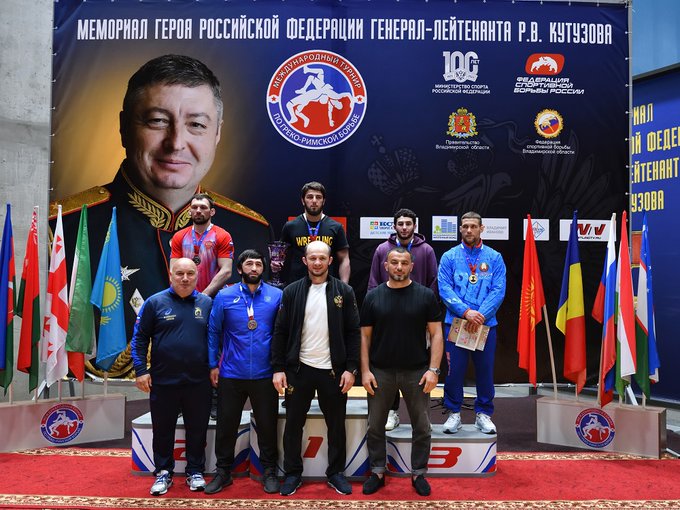
Nachyn Mongush served in the Russian army and was a member of the Russian Ministry of Defence's sports team. In 2023, he and his coach campaigned for Putin’s party, United Russia, using the occupation symbol “V.”
Arslan Bagaev and Yelizaveta Petlyakova competed in a 2024 tournament where Russian invaders and their families were guests, and veterans of the “special military operation” (Russia’s euphemism for the war against Ukraine) presented the awards.
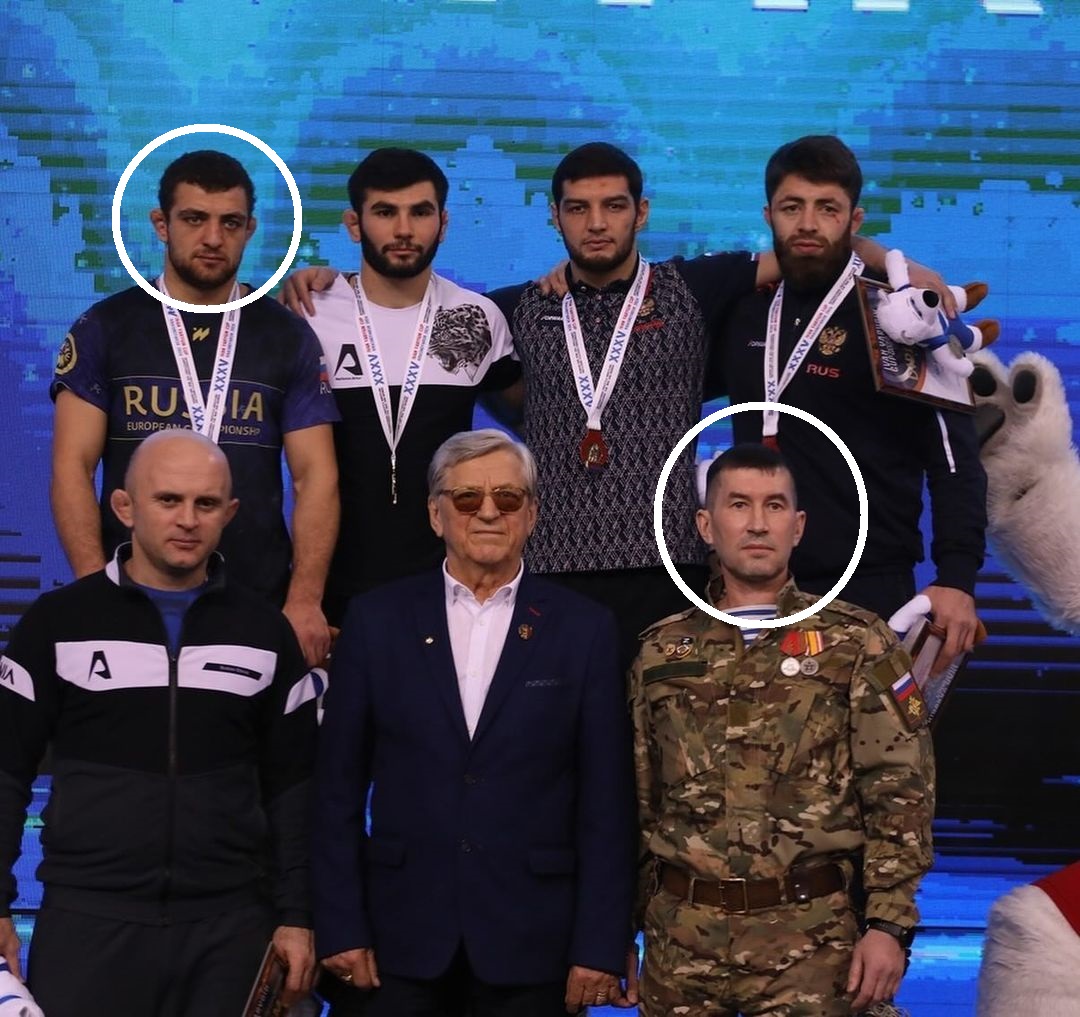
Alina Kasabieva, a Crimean athlete who obtained Russian citizenship, publicly supported Putin’s policies on social media.
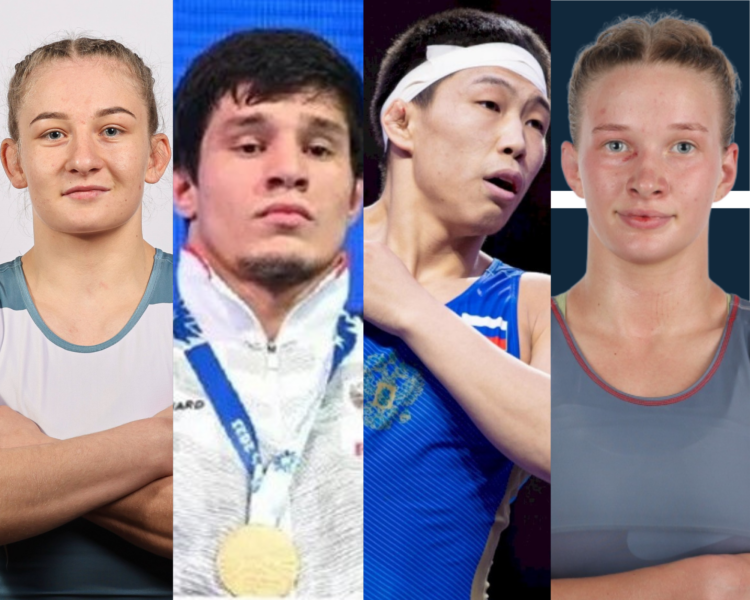
In early July, the Russian Wrestling Federation’s Executive Committee met with coaches and invited athletes. They unanimously decided to withdraw from the Olympic Games.
The IOC also accepted four Russian judokas who qualified via the Olympic ranking: Dali Liluashvili, Elis Startseva, Makhmadbek Makhmadbekov, and Valery Endovitsky. Out of the 17 who applied, two have overtly political leanings.
Elis Startseva,
an active member of CSKA (Central Sports Club of the Army), visited the Russian-occupied Ukrainian peninsula of Crimea and expressed open support for Putin.
Valery Endovitsky is associated with Dynamo, a sports association headed by FSB general Anatoly Gulevsky.
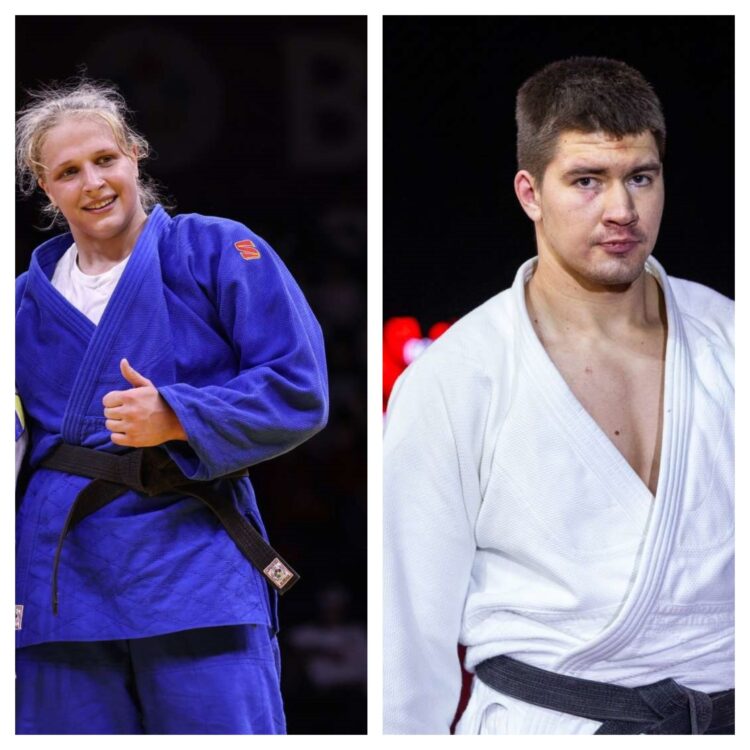
In response to the limited acceptance of their athletes, the Russian Judo Federation’s Presidium unanimously decided not to participate in the Paris Games, deeming the current terms “degrading.”
Despite the withdrawal of Russian wrestling and judo teams, questions remain about the IOC’s nomination and vetting process for these athletes.
Russian cyclist approved for Olympic Games despite pro-war stance and security force ties
The International Olympic Committee (IOC) has vetted and accepted four Russian cyclists and one Belarusian for participation in the 2024 Paris Olympics. Among the approved athletes is Tamara Dronova, who has openly expressed support for Russian President Vladimir Putin and the war in Ukraine.
Dronova’s approval has raised eyebrows due to her political stance. She visited Crimea, the Ukrainian peninsula occupied by Russia in 2014, and recently expressed regret about not being able to wear Russian symbols at international competitions.
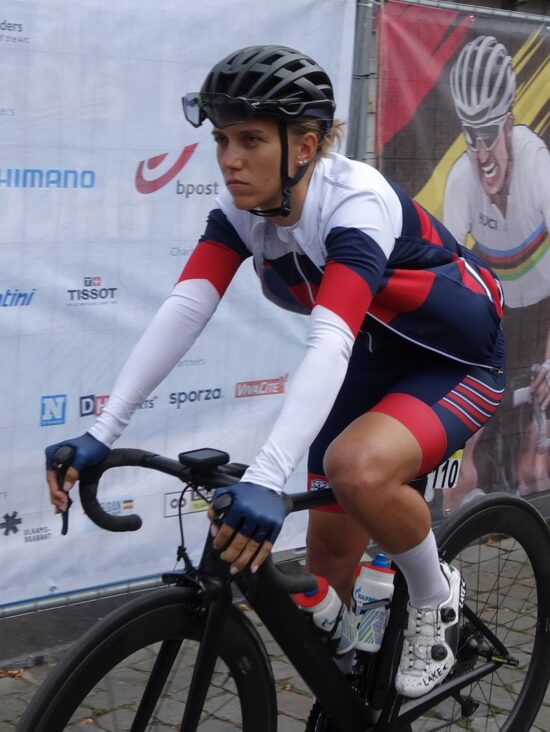
Further investigation by the Molfar OSINT Agency revealed Dronova’s ties to Russian security forces. She has worked in the Moscow division of the Dynamo Sports Association, an organization linked to various Russian security agencies. Dynamo, like the Central Sports Club of the Army (CSKA), is affiliated with Russian law enforcement and intelligence services.
The Dynamo Sports Association provides training for members of the Ministry of Internal Affairs, the Federal Security Service (FSB), the Foreign Intelligence Service, and the Russian Guard. It serves as a venue for both civilian athletes and security force personnel to undergo alternative military service.
Once again, Dronova’s approval to compete as a “neutral athlete,” despite her connections to state security structures and her support for Russian military actions, highlights the controversies surrounding the IOC’s vetting process for the upcoming Olympics.
Russian gymnasts out, only two trampoline athletes in amid political concerns
Russian gymnasts will not compete in the 2024 Paris Olympics, having lost their final opportunity to enter the tournament even under neutral status. However, the International Olympic Committee (IOC) has invited one Russian and two Belarusian athletes to participate in trampoline events.
Among the approved trampoline athletes is Ivan Litvinovich from Belarus, the defending Olympic champion in men’s trampoline. Litvinovich has drawn attention for his political activities, including urging Belarusians to participate in a controversial referendum organized by self-proclaimed President Lukashenka. He has also been involved in campaign events with Viktor Lukashenka, son of the Belarusian leader, who faces sanctions from the EU, US, Switzerland, Canada, Australia, New Zealand, the UK and Japan.
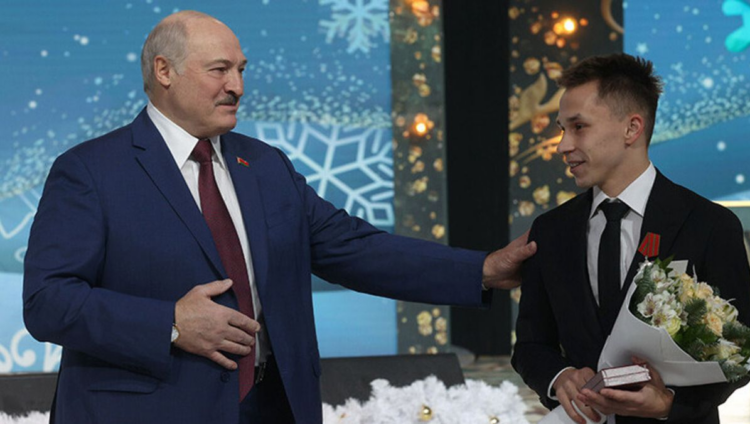
The sole Russian representative in the trampoline, Angela Bladtseva, participated in a May 2023 championship in Krasnodar. Bladtseva and other athletes performed
against a backdrop of the “Z” war symbol, the inscription “We don’t abandon our own!” and other propaganda and pro-war slogans.
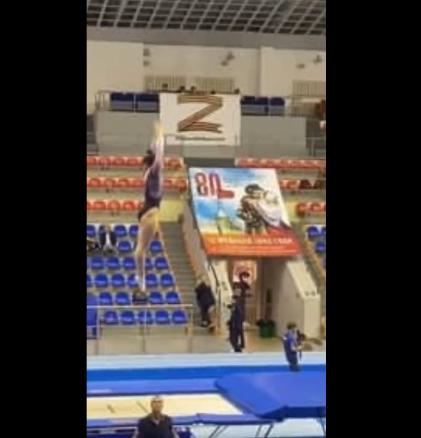
Ukraine’s National Olympic Committee has highlighted several other Russian and Belarusian athletes approved by the IOC, raising concerns about their political affiliations:
Hanna Tserakh (cycling): shared propaganda on social media and a photo with Viktor Lukashenka
Georgy Gurtseyev (taekwondo): liked pro-military and anti-Ukrainian social media posts
Anastasia Shkurdai (swimming): a member of the Belarusian army, participated in a propaganda event with the head of the Brest Regional Executive Committee, Yuri Shuleyko. This event was reported by many media outlets controlled by the Lukashenka regime, which supports the war against Ukraine. Shuleyko has been sanctioned by numerous countries for supporting Russia’s aggression.
Ivan Shtyl and Aleksey Korovashkov (canoe): members of the Russian Army’s Central Sports Club (CSKA) and Russian Army officers
Darya Chupris (shooting): a member of the Belarusian Armed Forces Sports Committee, who is often seen in photos with Belarusian military personnel.
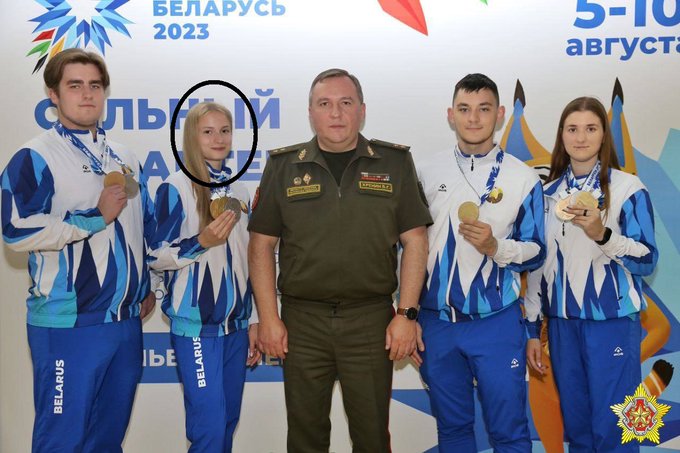
Once again, these approvals have raised questions about the IOC’s vetting process and the adherence to its own guidelines for neutral athletes.
Ukraine at the Olympic Games: The Will to Win!
Despite the continuing war and missile attacks across Ukraine, the country’s National Olympic Committee (NOC) has finalized the composition of Ukraine's official delegation for the 2024 Paris Olympics. The slogan of the Ukrainian Olympic Team: The Will to Win! (Воля до Перемоги!)
The delegation comprises 297 individuals, including 140 athletes, 12 sparring partners and alternates, 95 coaches, 27 medical staff and specialists, 4 drivers, 13 national team staff members, and 6 representatives from the equipment center. This marks the smallest team in Ukraine’s Olympic history. Previously, Ukraine’s smallest delegation counted 155 athletes at the 2020 Games in Tokyo. For the first time, Ukraine will field competitors in breaking and sport climbing.
Related:
- Has appeasement won the Olympics?
- Chechen individual from Russia arrested for planning Olympics terrorist attack
- Reuters: Russia will be asked for ceasefire during Olympics, Macron says
- Baltics call on Olympics to ban Russian and Belarusian athletes, not only teams
- Reuters: Macron to ask for help from Beijing in establishing truce between Ukraine and Russia during Olympics 2024
- The Olympic Committee has a genocidal dictator problem – opinion
- No flags, no teams: Russians and Belarusians to join 2024 Olympic Games as neutral athletes
- Ukraine’s Olympic Committee: Over 400 Ukrainian athletes killed due to Russia’s aggression
- Parisian Mayor: ‘Russian, Belarusian athletes will not be welcomed in Paris’

